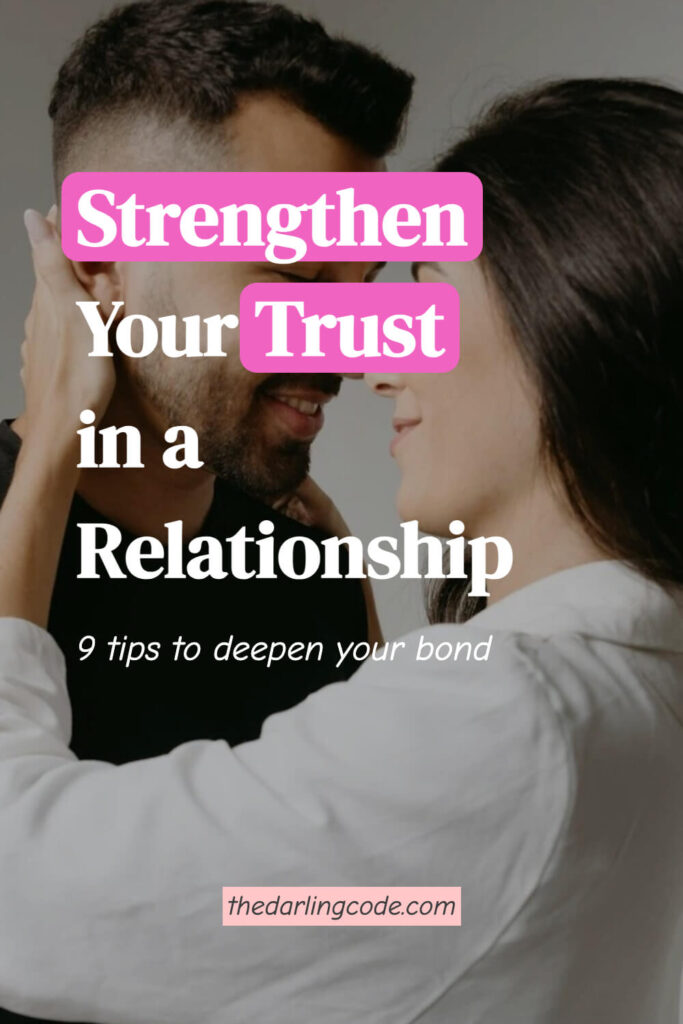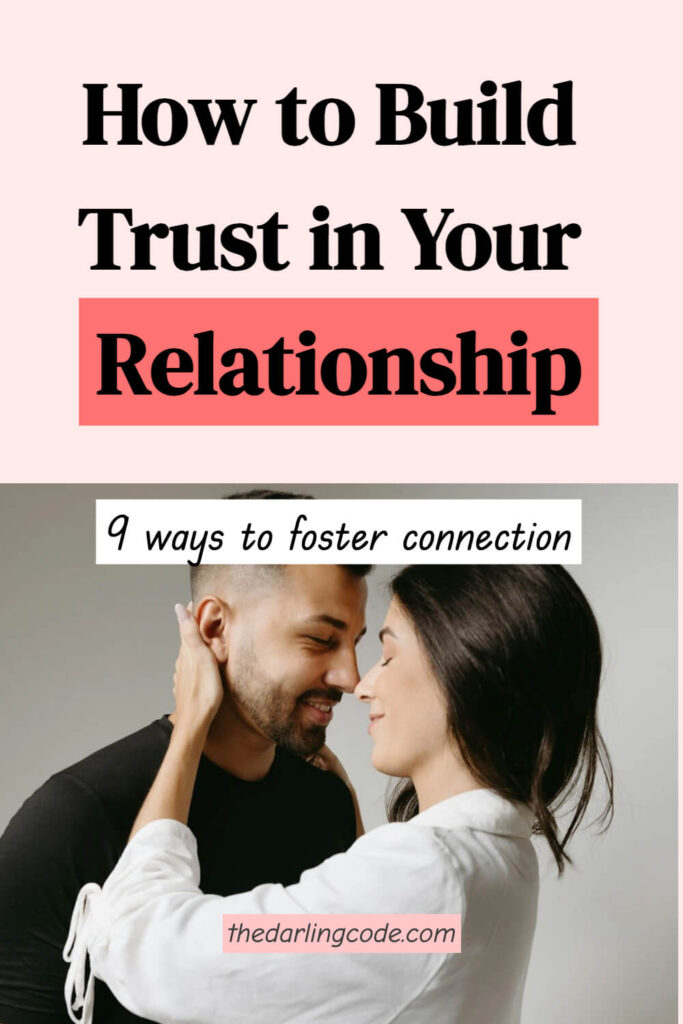How to Build Trust in a Relationship: 9 Gentle Steps to Create Lasting Connection
The experiences shared in this article are based on real emotional journeys, but all personal details are anonymized and used with the explicit written permission of the clients. Any resemblance to actual persons, living or dead, is purely coincidental. We are committed to treating all client stories with the utmost confidentiality and respect.
The Grocery Store Epiphany
Last winter, I found myself lingering in the cereal aisle of my local grocery store, watching a couple in their late 20s navigate a quiet disagreement.
The woman held up two boxes of oatmeal, asking her partner which one he preferred.
He shrugged, eyes glued to his phone. “Whatever,” he muttered.
Her face fell, and she quietly put both boxes back.
It wasn’t about the oatmeal.
It was about feeling unseen.
As a relationship coach for over a decade, I’ve learned that trust isn’t built in grand gestures—it’s woven into these small, seemingly mundane moments.
Let’s talk about how to nurture it, one oatmeal box at a time.
Save this article for later—Pin it to Pinterest and come back when you need it! 📌

1. Show Up Consistently (Even When It’s Boring)
The magic of predictability
Trust thrives on reliability.
If you say you’ll call at 7 PM, call at 7 PM.
If you promise to take out the trash, do it without being reminded.
Consistency isn’t sexy, but it’s the glue that holds relationships together.
A landmark study on long-term relationships found that predictability outweighs passion in building lasting trust.
Try this:
- Create “micro-commitments”:
- “I’ll text you during my lunch break”
- “I’ll walk the dog every Tuesday”
- Acknowledge slip-ups: Instead of pretending it didn’t happen, say, “Hey, I forgot to water the plants yesterday. I’ll set a reminder for next time.”
Real-life example: One of my clients, Jenna, struggled to trust her partner after he repeatedly canceled plans.
They rebuilt trust by starting small: He began sending quick updates like, “Running 10 mins behind—grabbing your favorite latte!”
Those tiny efforts reassured her he was prioritizing their connection.
Takeaway: Trust is a habit, not a performance.
2. Practice “Radical Transparency”
Honesty beyond just not lying
Trust isn’t just about avoiding lies—it’s about sharing hard truths early.
Resentments grow in the dark.
How to start:
Trisha, a project manager I worked with, once admitted she’d been hiding her frustration about always planning date nights.
When she finally said, “I feel lonely when I’m always the one initiating,” her partner confessed he’d felt insecure about his ideas being “good enough.”
Vulnerability sparked collaboration.
Scripts for tough conversations:
- “I feel nervous when plans change last minute” (vs. “You’re so flaky”)
- “Can we talk about something that’s been on my mind? I want to understand your perspective.”
Personal note: Early in my marriage, I hid my frustration about our mismatched sleep schedules (I’m an early bird; my husband thrives at midnight).
Instead of addressing it, I blew up over a burnt casserole.
Now, we do weekly “small irritations check-ins” over coffee.
Key insight: Share truths before they become landmines.
3. Let Them See Your Messy Middle
Vulnerability as a trust accelerator
People trust humans, not highlight reels.
Share struggles you’re currently navigating—not just polished success stories.
Action steps:
- Swap surface-level updates for something real:
- “I’m actually really nervous about this work presentation”
- “I’ve been doubting myself as a parent lately”
- Ask curious questions: “What’s something you’re wrestling with this week?”
Client story: A 35-year-old client shared her anxiety about turning down a promotion with her partner.
His response? “I’m proud of you for setting boundaries. Let’s brainstorm ways to make this transition easier.”
That conversation deepened their bond more than any “perfect” date night.
Why it works: Vulnerability invites reciprocity.
4. Become a Safe Space for Big Feelings
The art of emotional containment
When someone shares something vulnerable, your first job is to hold space—not fix, dismiss, or compare.
Scripts to try:
- Validate first: “That sounds exhausting. Do you need to vent or brainstorm solutions?”
- Stay present: Put your phone face-down (ask, “Mind if I silence this?”) during emotional conversations.
Pro tip: My husband and I use a “no devices after 8 PM” rule.
The other night, this led to a raw talk about his grief over losing a mentor—a conversation that might’ve been buried in daytime distractions.
Remember: Safety is built in moments of emotional courage.
5. Repair Ruptures Quickly
Master the 3-step apology
Every relationship has misunderstandings.
What matters is how you clean up the mess.
The repair framework:
- Acknowledge the impact: “I realize my joke hurt you. That wasn’t okay.”
- Take responsibility: “I should’ve considered how that comment might land.”
- Offer repair: “How can I support you now? Would it help if I talked to your sister about it?”
Client example: After snapping at his girlfriend during a stressful move, Alex texted: “I’m sorry I took my stress out on you. You didn’t deserve that. Can I make it up by handling the rental truck solo tomorrow?”
She later told me: “The apology felt specific—it showed he really understood.”
Avoid: “I’m sorry you felt that way” (this shifts blame).
6. Protect Their Privacy
Why oversharing erodes trust
Your partner’s insecurities or struggles aren’t gossip fodder.
Even “venting” to friends can chip away at trust.
Guidelines:
- Ask before sharing: “Is it okay if I talk to my sister about the job offer dilemma?”
- Keep conflicts private: Processing with one trusted confidant (not the entire book club) preserves intimacy.
Cautionary tale: A client once joked about her partner’s “annoying snoring” at a BBQ.
He overheard and withdrew for weeks.
It took months to rebuild his sense of safety.
Golden rule: If you wouldn’t say it with them, don’t say it about them.
7. Align Your Words and Actions
The trust equation: (Words + Deeds) x Time
Repeated mismatches between what you say and do create “trust debt.”
Spot-check alignment:
- Are you promising “quality time” but scrolling through TikTok during dinners?
- Does your “I support your career” align with complaining about their work trips?
Fix misalignments:
- Under-promise, over-deliver: Instead of “I’ll cook nightly,” try “Let’s meal prep Sundays together.”
- Course-calculate: “I noticed I’ve been canceling our hikes. Can we reschedule for this weekend?”
Personal story: When my husband started forgetting anniversaries, we created shared calendar alerts—not because we “had to,” but to protect what we valued.
8. Celebrate Their Wins Like Your Own
Building mutual investment
Nothing fuels trust like feeling genuinely championed.
Upgrade your celebrations:
- Go beyond “congrats”: “I know how hard you worked on that pitch! Let’s frame the client’s feedback.”
- Mark micro-wins: Finished a tough workweek? Surprise them with their favorite takeout.
Client example: When Derek’s wife landed a freelance gig, he surprised her with a “CEO parking only” sign for her home office.
The playful gesture showed he saw her ambition as their win.
Why it matters: Joy shared is trust multiplied.
9. Trust Yourself First
How self-doubt sabotages relationships
If you don’t trust your worth, you’ll either over-control or under-value your partner.
Rebuild self-trust:
- Keep promises to yourself: Start with one small commitment (e.g., 10-minute daily walk).
- Practice discernment: “Is this fear from past hurt, or is something real happening here?”
Powerful shift: A client battling jealousy realized, “I kept checking his texts because I didn’t trust myself to handle betrayal.”
Working on her self-worth transformed their dynamic.
Final Words from The Darling Code
Trust isn’t a finish line—it’s the path you walk daily.
Start today by choosing one small action:
- Text an awkward truth: “I felt left out when you joked about my cooking.”
- Silence devices during dinner—no exceptions.
- Ask, “What’s one way I could make you feel safer this week?”
Remember: Every strong relationship was once fragile.
What makes it unbreakable is choosing, again and again, to be someone worth trusting.
With heart,
The Darling Code
P.S. Save this to your Pinterest “Relationship Goals” board!
Today’s action step: Text your partner one genuine appreciation before sunset. (Yes, right now—I’ll wait!)
Got value from this article? Pin it to Pinterest for easy reference and help others discover it! 🌟


ABOUT THE AUTHOR
Carsey, Founder, Editor-in-Chief & Relationship Coach
Carsey is the heart and mind behind this space. As a Relationship Coach and Editor-in-Chief, she blends practical advice with storytelling to help you navigate love, connection, and everything in between.






